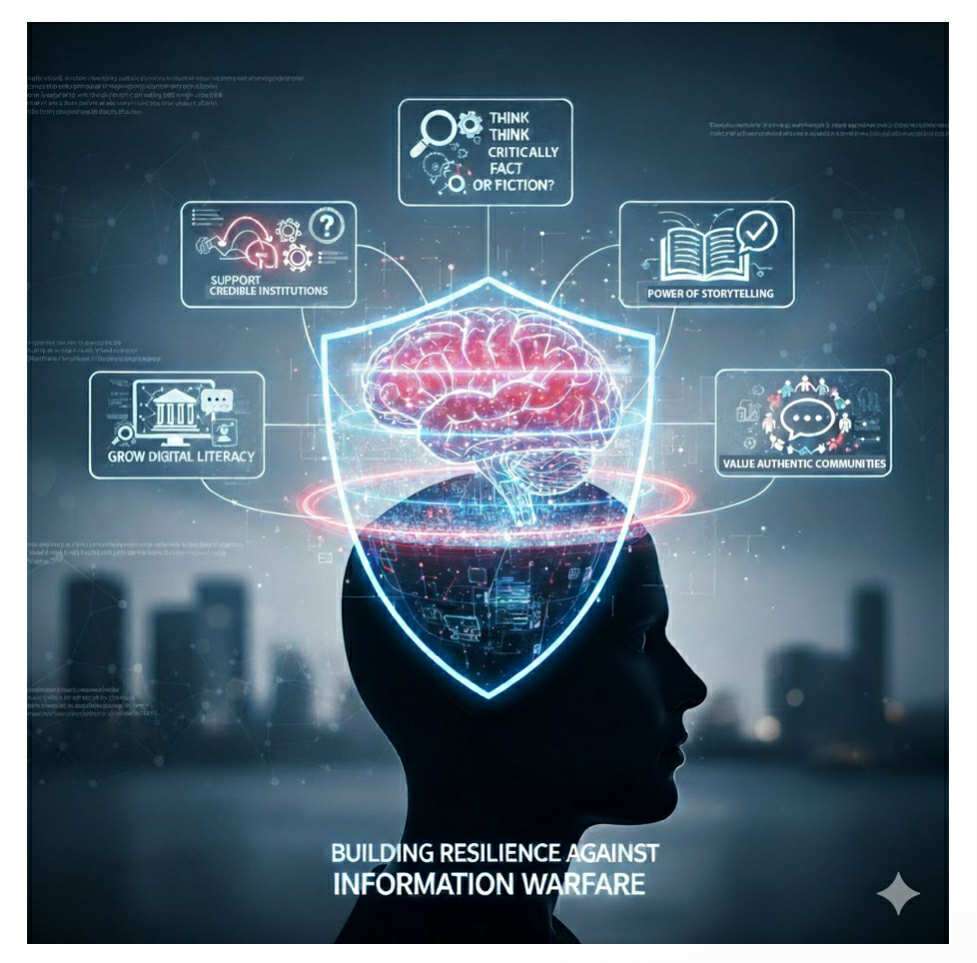Part 2: Resisting Information Warfare What You Can Do…

The following is the second installation of a series of public service announcements
to raise awareness concerning Information Warfare and its effects on our
communities here and in the Homeland.
Why You Matter in the Fight Against Information Warfare
Defending against Information Warfare is a collective responsibility involving
organizations and community members alike, undertaking a conscious effort to
rebuild trust in shared realities and institutions.
Why It’s Hard to Fight
Combating Information Warfare is challenging due to several factors:
● Speed & Scale: Online misinformation
spreads quickly, often faster than efforts to
debunk it.
● "Demand Problem" vs. "Supply
Problem": The fundamental mistake of the
"misinformation paradigm" (focused on
suppressing supply) is that it often fails to
address the underlying "demand problem."
When trust in authority is lost, constraining
the supply of information can inadvertently
increase the demand for alternative, even
false, sources.
● Trust Crisis: Perceived failures of
institutions (e.g., government agencies,
media) to be transparent, admit mistakes,
or hold themselves accountable
significantly erode public trust, making
people more susceptible to alternative
narratives.
● Political Polarization: Truth becomes partisan.
The biggest issue isn’t just false content—it’s that people want to believe it because
they’ve lost trust. Trust must be addressed, not just the information supply.
How to Build Resilience
Combating information warfare requires a shift from reactive crisis management to
proactive, systemic resilience.
● Think Critically: Pause before reacting.
Ask: Who made this? Why? Be aware that
social media is designed to capture
attention, not to make you think critically.
Consider the source of information, its
factual accuracy, and whether it's designed
to provoke strong emotions. Be skeptical,
but not nihilistic.
● Power of Storytelling: Recognize that
successful campaigns operate through
compelling stories or narratives, not just
isolated facts.
● Support Credible Institutions (and
demand accountability): While
institutions have flaws and make mistakes,
demand that they acknowledge errors,
provide corrections, and maintain integrity. This includes traditional journalism,
academia, and government bodies. Push for transparency and accountability.
● Grow Your Digital Literacy: Understand the tactics used to spread false
information. Learn to spot bots, AI-generated content, and manipulation.
Question sources of information and their legitimacy.
● Value Authentic Communities: Information is often trusted based on social
relationships. Look for sources and communities that build trust through
authenticity, open discussion, and a commitment to method rather than just
institutional seals of approval. Trust spreads best in spaces that value
discussion, not outrage.
● De-Polarization: Many Information Warfare tactics aim to divide people, which
makes them easier targets for manipulation. Efforts to depolarize and learn to
communicate across differences can help build societal resilience.
Your Role Matters
You don’t need to be perfect—just pause, question, and act with care. When
individuals grow more aware, our communities grow stronger. Truth becomes
harder to defeat.





